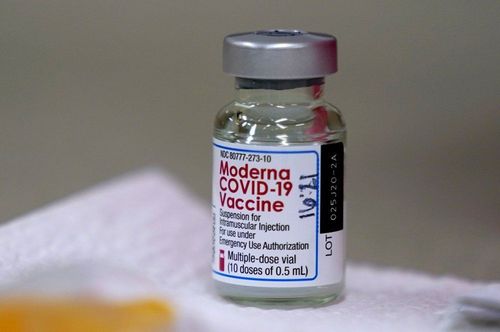This is an automatically translated article.
Surely many people are concerned about what it is like to lose taste or smell during the current complicated COVID-19 situation. Loss of taste can be caused by other health problems. So you have a good understanding of what loss of taste is and the common causes of this condition. Read more of the article below to understand more about what the loss of taste is a sign of.
1. What is loss of taste?
Currently, many people do not properly understand what the state of taste loss is. This is a condition in which you cannot taste the normal taste of food. Generally, taste loss is divided into several categories, including:
Decreased taste, phantom taste (seeing a taste that is actually absent); Loss of sense of taste; Complete loss of sense of taste. Although abnormal taste can also be due to a psychiatric disorder, a local cause should always be sought. The integrity of the glossopharyngeal and facial nerves can be determined by testing the taste buds on both sides of the tongue with sugar, salt, vinegar (acid) and quinine (bitter).
The surface of the tongue will have thousands of tiny taste buds. Each taste bud detects one of five basic tastes: sweet, salty, sour, bitter, or delicious. These tastes can be detected all over the tongue, but in some areas are more sensitive to each taste. Nerve impulses from taste buds are transmitted to the brain and help humans distinguish different tastes. Taste disorders are rarely disabling or life-threatening, so the problem often goes unnoticed, but in some cases, a taste disorder or high fever loss of taste is the result of many other health problems need treatment such as dry mouth due to heavy smoking, Sjogren's syndrome,...

Mất vị giác là như thế nào?
In all cases the taste receptors involved are different. Taste disturbances are rarely noticed when confined to one side of the tongue. Sudden loss of taste can also be an early symptom of coronavirus disease 2019 (Covid - 19), caused by severe acute respiratory syndrome coronavirus 2 (SARS-CoV-2).
2. What disease does loss of taste mean A number of health problems can cause an unpleasant sensation in the mouth or lead to loss of taste such as:
2.1. Taste disorder A taste disorder causes the mouth to always have a persistent taste that overwhelms all other tastes. You may find that all the foods you re-seasoned taste the same. People with taste disorders often describe the taste in their mouth as:
Oh; Foul; Salty; Sour; Metallic taste. 2.2. Osteoporosis is a partial loss of the ability to perceive a particular taste. People with this disorder may not be able to perceive the main tastes such as:
Bitter taste; Sour; Salty taste; Sweet; Meat sweetness (umami). 2.3. The tongue is not the only organ that plays a role in perceiving taste. The ability to perceive taste is quite complex because it involves the tongue, throat, palate, and nose. Therefore, the sense of smell also significantly affects the perception of food. Those who have partially or completely lost their sense of smell may claim that the tongue has lost its taste.
2.4. Loss of taste as a side effect of certain medications Some medications can also affect the tongue's ability to taste. These drugs are:
Macrolides; Antifungal drugs ; Fluoroquinolones; Protein kinase inhibitors; HMG-CoA inhibitors (statins); Angiotensin-converting enzyme inhibitors. 2.5. Ageusia causes taste loss Ageusia is a complete loss of taste and the inability to taste any flavors. However, this condition is very rare. A 2016 study estimated that only 3% of people with taste loss actually have ageusia.
2.6. What are some other signs Loss of taste? Other signs of taste disturbance and loss of taste include:
Sinusitis ; otitis media ; Poor oral hygiene; Upper respiratory tract infection; During surgery on the mouth, throat, nose or ears; Having dental problems such as gingivitis; Direct exposure to certain chemicals such as pesticides. Perform radiation therapy to treat cancers in the head; In addition, there are some problems related to the nervous system, such as a head injury or a nervous system disorder. Loss of taste can also occur in smokers, gingivitis, periodontal disease or patients undergoing radiation therapy for cancer; A high fever and sudden loss of taste can also be an early symptom of the 2019 coronavirus disease.

Có nhiều nguyên nhân gây mất vị giác
3. How to recognize loss of taste. When there is a loss of taste, you should see an otolaryngologist. Your doctor may have to ask you to perform some clinical tests such as:
Krarup's electrical taste test: Uses a small DC current of 0-500 micro ampère, to place the anode on one side of the tongue. for 0.5-1 seconds will cause a sour feeling of metal. If the current is up to 300 micro ampère without feeling when comparing the two sides, it is considered as feeling lost. Boorstein's taste test: Using a solution of sweet, salty, sour, bitter, dot the lateral border of the tongue and compare the two sides. You have to wait about 5 minutes before you can try again to check how much you lose your taste. 4 How to overcome a loss of taste Taste loss can be temporary or permanent, depending on the cause. In simple cases like loss of taste due to a common cold or flu, your doctor will not prescribe a prescription, but will wait for you to clear up so your taste buds return to normal. In addition, the doctor may:
Provide topical sprays or antihistamines to treat nasopharyngeal conditions; Consider eliminating drugs suspected of leading to decreased taste; Supplement nutrients; For people with sinusitis or otitis media, their doctor will likely prescribe antibiotics. In more serious conditions such as neurological disorders or head trauma, your doctor can refer you to the right specialist for the right treatment. Loss of taste will make you feel unappetizing, causing anxiety, depression. Currently, treatment will focus on the cause of the disease, so it can take a long time. Patients will need patience and cooperation to improve their taste loss in the long run. For some obvious diseases such as high fever, loss of taste, manifestations of Covid-19 or respiratory diseases, the loss of taste will be relieved until the patient is completely cured.
Besides following your doctor's orders, you can also do some home remedies as follows:
Quit smoking if you are a smoker; Take an over-the-counter antihistamine to relieve rhinitis if necessary; Maintain oral hygiene by brushing, flossing and using mouthwash every day. Tongue loss of taste can be due to many different reasons such as sinusitis, mouth surgery, medication or some rare syndromes. You need to identify the signs that affect your taste buds to be able to treat them effectively.
Vinmec International General Hospital is one of the facilities that not only ensures professional quality with a team of leading medical doctors, a system of modern equipment and technology, but also stands out for its examination and consultation services. comprehensive and professional medical consultation and treatment; civilized, polite, safe and sterile medical examination and treatment space.
Please dial HOTLINE for more information or register for an appointment HERE. Download MyVinmec app to make appointments faster and to manage your bookings easily.













